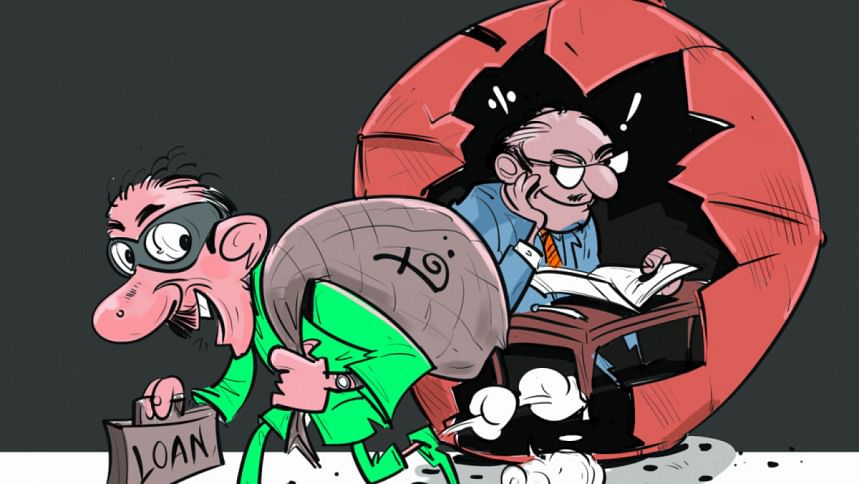A country where loan defaulters are rewarded!

All over the world, strict actions are taken against loan defaulters, with many countries imposing travel bans and seeking legal recourse. In Bangladesh, however, defaulters get mega-discounts.
For instance, the Bangladesh Bank (BB) last week extended an offer to loan defaulters named "exit policy", which allows an interest waiver for defaulters in exchange for paying only 10 percent as a down payment.
As per the policy, defaulters will get a maximum of three years to repay their loans.
The move, which comes at a time when interest waiver facilities are being widely criticised in parliament, appears to be nothing more than window dressing.
Through the policy, the BB aims to reduce bad loans to 10 percent for state-run banks and 5 percent for private banks by 2026 in line with the prescription of the International Monetary Fund.
"The financial condition of clients has been adversely affected by various uncontrollable factors -- that's why an exit policy is needed to recover the loans from them," the BB said in a statement last week.
However, industry insiders opine that there is a massive scope to misuse the policy, especially as it is being offered year after year.
After being pressured by the business community in 2019, the central bank introduced a "one-time exit policy", allowing defaulters to get interest waivers by paying only 2 percent as a down payment against their total loans.
A good number of defaulted borrowers were rewarded with interest waivers and loan rescheduling facilities under the policy. But the "one-time" exit policy has continued for each year thereafter, with thousands of crores of taka in interest repeatedly waived by banks.
In 2022, banks waived Tk 5,065 crore in interest, which was up 173 percent from around Tk 1,855 crore the previous year, central bank data showed.
Alongside interest waivers, defaulters have also been allowed to reschedule bad loans repeatedly.
In 2019, delinquent borrowers were allowed to reschedule their loans for 10 years after paying only 2 percent as a down payment. That year, a record Tk 52,770 crore was regularised under the policy and the one-time exit policy, as per BB data.
At the time, the central bank cited the same reasons as it is now. It had said that it introduced relaxed policies to reduce the amount of bad loans in the banking sector.
However, the generous offer has proved to be counter-productive since non-performing loans (NPLs) have surged.
For instance, when the BB introduced the exit policy in 2019, defaulted loans stood at Tk 93,911 crore. It climbed to Tk 182,000 crore in March this year, according to central bank data.
Furthermore, stressed assets, including rescheduled loans, written-off loans and loans involving lawsuits, now stand at more than Tk 400,000 crore.
Economic experts believe that repeat offerings of such relaxed policies have motivated defaulters not to repay since they believe they will always get mega discounts.
However, due to such rewards for delinquents, good and regular borrowers also being motivated to become defaulters.
Most countries, including India, China, the US, and Malaysia, are strict against defaulters, especially willful ones.
For example, defaulters in Malaysia are not allowed to leave the country while China imposes curbs such as travel bans and reduced employment opportunities.
In some countries, children of defaulters cannot enroll in elite schools. But in Bangladesh, defaulters and their families are enjoying all the social benefits that regular citizens are entitled to.
What is more, loan defaulters always get discounts to repay bad loans, and, in some cases, they enjoy more benefits than ordinary citizens.
Some steps have finally been taken to rein in NPLs. Recently, the government amended the Bank Company Act, introducing harsh measures against wilful defaulters.
The revised rules ban wilful defaulters from becoming bank directors for five years after they exit the defaulter list. It also renders them ineligible for national awards.
Wilful defaulters are ineligible for interest waiver and loan rescheduling facilities.
However, there are concerns that it may be difficult to implement such harsh restrictions on willful defaulters without political will, according to experts.

 For all latest news, follow The Daily Star's Google News channel.
For all latest news, follow The Daily Star's Google News channel. 



Comments